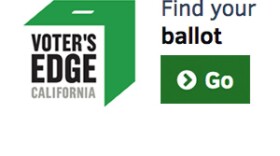A lawsuit by supporters of Bernie Sanders that claimed election officials in California were depriving unaffiliated voters of their right to cast ballots in the June 7 Democratic presidential primary was filed too late and lacked evidence that federal laws were violated, a judge ruled Wednesday.
The Voting Rights Defense Project had argued that county elections officials were failing to inform unaffiliated voters that they could seek a crossover ballot.
RELATED: San Diego Registrar Discusses Nonpartisan Voters And The June Primary
The lawsuit also said poll workers were receiving conflicting instructions about whether they could tell voters of that right.
"This is what I call a case of mass confusion," attorney William Simpich, who represents the group and other plaintiffs, told the judge in court.
The lawsuit named California Secretary of State Alex Padilla and elections officials in Alameda and San Francisco counties as defendants.
Among other things, it sought radio and TV ads telling unaffiliated voters that they can vote in the primaries of the Democratic, American Independent and Libertarian parties.
Attorneys for Padilla said in court documents that the lawsuit was frivolous.
U.S. District Court Judge William Alsup sided with Padilla and the other defendants.
"The citizens of California are smart enough to know what their rights are, and smart enough to go into a polling place and say, 'I'm a (no party preference-voter) and want a crossover ballot,'" Alsup said.
Deputy Attorney General Sharon O'Grady, who represented Padilla's office, said unaffiliated voters who noticed presidential candidates were missing from their ballots could go back to a poll worker and get the ballot they wanted.
"This is not a situation where people are going to be blindsided and trapped," she said.
The Voting Rights Defense Project said in court documents it has no formal relationship with the Sanders campaign.
Simpich said he would continue the lawsuit, although he didn't immediately know what his next step would be.







